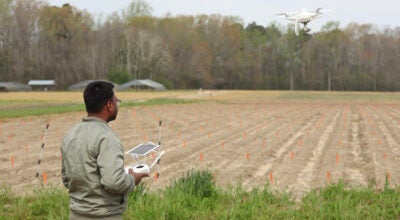Council opts not to consider exemption
Published 9:41 pm Tuesday, July 23, 2019
After debate about establishing a real estate tax exemption for the surviving spouses of first responders who die in the line of duty, Suffolk City Council voted against having the city attorney draft such an ordinance.
By a 5-3 vote, the council last Wednesday decided not to have City Attorney Helivi Holland put together a draft ordinance that would create a line-of-duty exemption for the surviving spouses of first responders killed while on the job. Another vote would have come later on the draft ordinance itself.
Councilman Mike Duman had sought the measure and was disappointed by the vote.
Mayor Linda T. Johnson and Vice Mayor Leroy Bennett, as well as Councilmen Roger Fawcett, Donald Goldberg and Tim Johnson voted against having the city attorney draft an ordinance. Duman, Lue Ward and Curtis Milteer voted in favor of it.
The discussion about creating a possible line-of-duty exemption for first responders came following a proclamation earlier in the evening to commemorate the city’s National Night Out event in August.
“National Night Out provides an opportunity once a year in this city to display an appreciation for the cooperation that exists between our citizens and our first responders in a mutual request to fight crime in our city, and it’s something to be proud of,” Duman said. “It’s also rather ironic that we have chosen … to not show support for those same first responders by not choosing to consider an ordinance … to allow tax exemptions for surviving spouses of those same first responders if they were to die in the line of duty.”
The council directed the city to develop a report on the fiscal impact of providing a real estate tax exemption for the surviving spouses of first responders killed in the line of duty.
Finance Director Tealen Hansen said that six localities have line-of-duty exemptions, with eight exemptions granted overall — none in Isle of Wight County, and one each in Gloucester and York counties, one in Portsmouth, two in Virginia Beach and three in Chesapeake. The total tax revenue exempted in all those localities: just $19,321.
Hansen said just nine localities out of 30 she looked at across the state had a line-of-duty exemption ordinance.
For Suffolk, she projected that for one exemption with an average single-family residential property value of $238,100 in fiscal year 2019, there would be $2,643 in exempt tax revenue.
Mayor Johnson said it was an issue of fairness in not supporting the measure, citing the May 31 mass shooting in Virginia Beach, in which city employees that were not first responders were killed while working.
“As we make these laws, and we create these groups — and I want every fire and police, I want them to have every benefit they could possibly get,” the mayor said, “I also want to be fair that there are other people dying in the line of their duty, whatever it is, that went to work and didn’t come home, and their families are now not whole. That disturbs me greatly as we go through this.”
Tim Johnson said he didn’t think the ordinance has been studied enough or put together well enough.
“I just don’t think it’s something that we’re ready to bite off,” he said.
Virginia voters in 2016 voted overwhelmingly in favor of a referendum giving localities the ability to exempt surviving spouses of first responders killed in the line of duty from having to pay property taxes.
Holland said the Virginia Retirement System would make the determination as to whether there was a line of duty death but would not decide on the tax exemption itself. That, she said, would be up to council to determine. She also said the death would not have to occur instantly, but could also be attributed to illnesses that stem from a first responder’s occupation.
Holland, in response to a question from Duman, said the council could place a moratorium on the claims should there be many filed at once.
“Barring any unforeseen circumstances, there’s no reason to believe it would have any fiscal impact of any significance at all to Suffolk,” Duman said. “This ordinance, to me, is more of a token, a goodwill gesture, if you will.”






